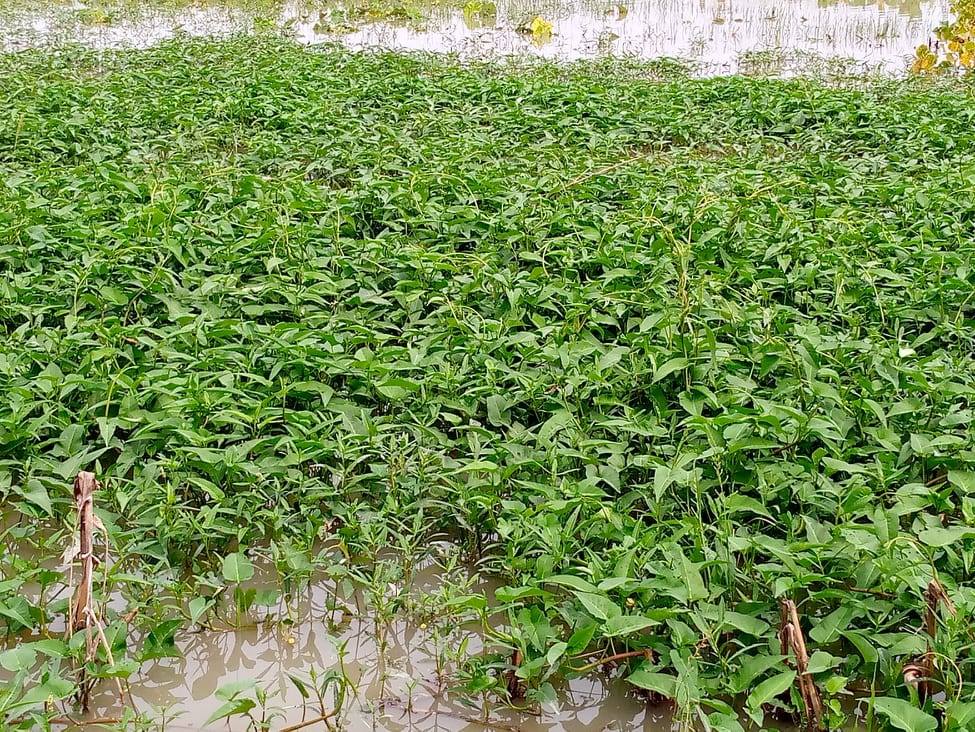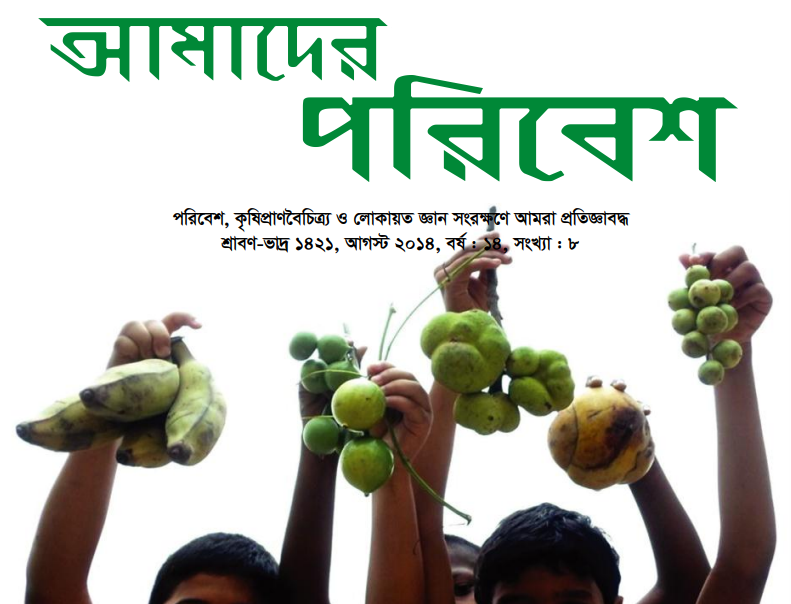Sattaranjan Saha, Harirampur, Manikganj,
‘We wait for rain as when rain comes it brings hope for us. When rain comes it helps us to chase our golden dream by cultivating diverse crops in the fields. We can have good harvest and meet our demand’-says Ayesha Begum from Andermanik of Manikgonj. She further said, ‘We depend on nature for our cultivation system. Therefore, rain is very necessary for us as it carries us silt which makes our lands fertile. The fertile lands help us producing good crops and grains.’ She asserts, ‘We are farmers, agriculture is our hope. Our dream is to live well in the future.’
Farmers in Harirampur sub-district of Manikgonj are hopeful that they can produce good yields this year. They also can collect foods from the nature during the rainy season as this time uncultivated plants (Foods to many of rural people) are abundant in the nature. For this, the farmers mark rain as ‘blessing’ to them. They said, ‘During rainy season we are more dependent on natural food. We find abundant of natural plants grow that time which we use as foods and in some extent as medicines as well.’

Ayesha Begum further said, ‘due to low lying area, there is water for two (Shravan-Bhadra) months in monsoon and edible vegetables are produced. At that time, Kalmi and Kachu Lati and Kachu Shaak are abundant in the nature and our fields. There are also some herbs in our homestead which are grown naturally. We collect all these uncultivated plants to use as foods and medicine. She went on saying, ‘We also try our best to protect these plants from getting disappeared that is why we do cultivate them in our homestead.’
On the other hand, Maryam Begum, an uncultivated plant conserver from Holoyaghat in the same district, said, ‘My family is doing well by picking and selling uncultivated vegetables from the field during the rainy season. These uncultivated vegetables are very useful to us. We have to take the responsibility to conserve these uncultivated food plants so that we could have easy access to foods during crisis. In addition, these uncultivated food plants are source of nutrition. But for lack of Knowledge we seldom use them rather destroy them unintentionally.’
It is to mention that BARCIK has been facilitating the farmers and other occupational groups in Manikgonj for a long time. The importance to conserve and protect the uncultivated food plants has been shared with farmers and women in different events. This leads them to understand the importance and food as well as medicine values of these plants. Now they are making efforts to protect these uncultivated plants to access them foods during crisis.
Translated by Silvanus Lamin

